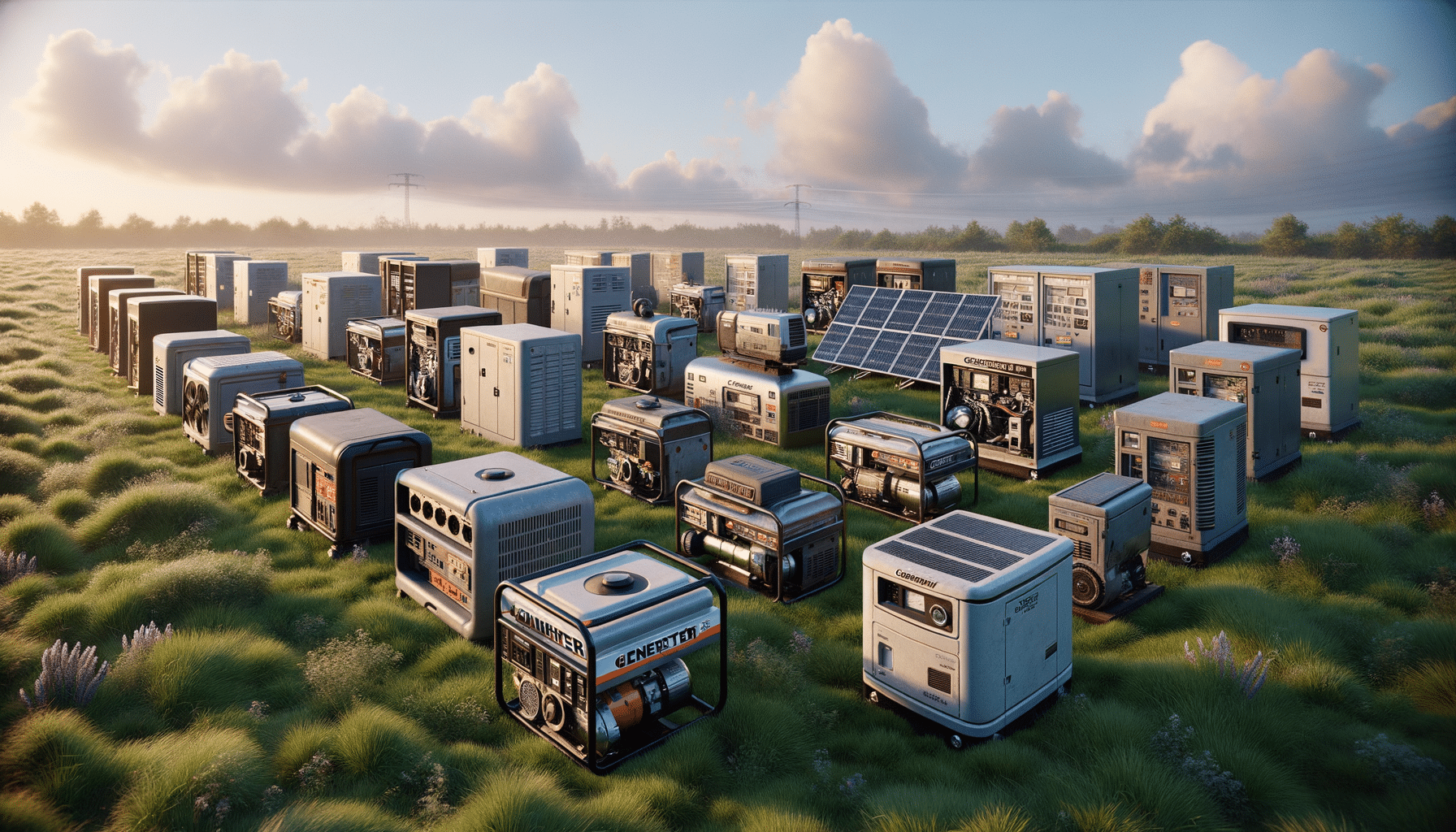
What You Need to Know about Generators
The Importance of Power Generators
Power generators serve as indispensable tools in both residential and commercial contexts. As our reliance on electricity grows, so does the necessity to ensure an uninterrupted power supply. Whether it’s a major storm causing outages or a remote location with limited access to the grid, generators provide a critical safety net. These devices convert mechanical energy into electrical energy, supplying power when and where it’s needed most.
Generators are particularly vital in emergency situations, where they can keep essential systems running. For homeowners, this means maintaining heating and cooling systems, lighting, and the ability to store food safely. For businesses, generators can preserve data, maintain security systems, and ensure operational continuity. By understanding their importance, users can make informed decisions about the types of generators that best suit their needs.
Types of Power Generators
Power generators come in various types, each suited to different needs and environments. The most common types include portable, standby, inverter, and solar generators. Portable generators are versatile and ideal for temporary use, such as during outdoor events or short-term power outages. They typically run on gasoline and offer a balance of power and convenience.
Standby generators are permanently installed and automatically kick in during a power outage, making them suitable for homes and businesses that require a reliable backup power source. Inverter generators are known for their fuel efficiency and quieter operation, making them a popular choice for camping and outdoor activities. They adjust the engine speed to produce the exact amount of power needed, reducing fuel consumption and noise.
Solar generators are a sustainable option, using solar panels to convert sunlight into electricity. While they depend on weather conditions, they offer an eco-friendly alternative to traditional fuel-powered generators. Understanding the differences between these types can help users select the generator that aligns with their power needs and environmental considerations.
Fuel Options for Generators
Generators can operate on a variety of fuel types, each with its own set of advantages and limitations. The most common fuels include gasoline, diesel, natural gas, and propane. Gasoline-powered generators are widely used due to the availability of gasoline and the portability of the units. However, gasoline has a shorter shelf life and requires careful storage.
Diesel generators are known for their durability and efficiency, particularly in larger, more industrial settings. They can run for longer periods and are more fuel-efficient than gasoline generators, although they can be noisier and more expensive to maintain. Natural gas generators are connected to the gas lines of a home or business, offering a continuous fuel supply and lower emissions.
Propane is another clean-burning option that can be stored for long periods without degradation. Propane generators are versatile and can be used in both portable and standby models. By evaluating the fuel options, users can choose a generator that best meets their energy requirements and environmental goals.
Key Features to Consider
When selecting a power generator, several key features should be considered to ensure it meets the intended purpose. Wattage is a crucial factor, as it determines the number of appliances and devices the generator can power simultaneously. Users should calculate their total power needs to select a generator with adequate wattage capacity.
Runtime is another important consideration, indicating how long a generator can operate on a full tank of fuel. Longer runtimes are beneficial during extended outages, reducing the need for frequent refueling. Noise level is also a factor, especially for residential areas where quieter operation is preferred.
Additional features to consider include automatic start, which activates the generator during a power outage without user intervention, and transfer switches, which facilitate safe and easy connection to a building’s electrical system. By considering these features, users can select a generator that provides reliable and efficient power supply tailored to their specific needs.
Maintenance and Safety Tips
Proper maintenance is essential for ensuring the longevity and reliability of power generators. Regularly checking oil levels and changing the oil according to the manufacturer’s guidelines can prevent engine damage. Keeping the generator clean and free of debris also helps maintain efficient operation.
Safety is paramount when operating generators. Users should always run generators outdoors in well-ventilated areas to prevent the buildup of dangerous carbon monoxide fumes. Installing carbon monoxide detectors in nearby areas can provide an added layer of protection.
It’s also important to store fuel safely, away from heat sources, and to adhere to all manufacturer recommendations regarding usage and maintenance. By following these maintenance and safety tips, users can ensure their generators operate safely and effectively when needed most.


